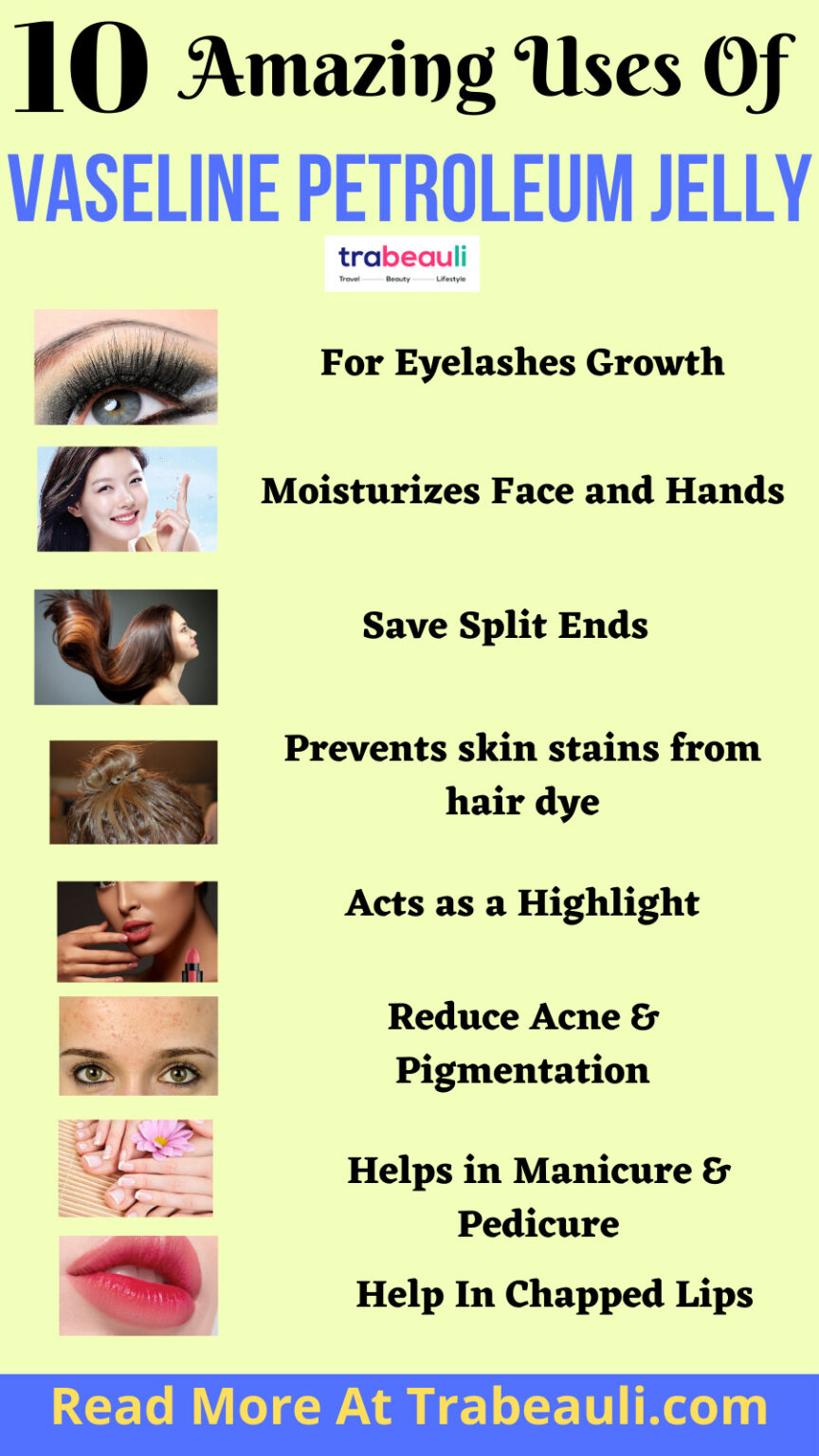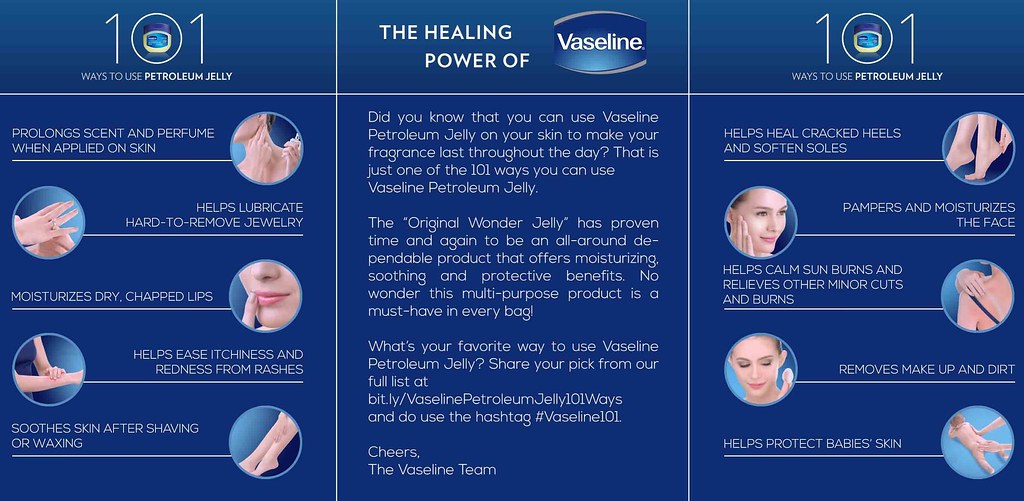The Ultimate Guide To Petroleum Jelly: Uses & Benefits
Can a simple, inexpensive product in your medicine cabinet truly be a skincare powerhouse? The answer is a resounding yes petroleum jelly, a ubiquitous ointment, offers a remarkable range of benefits, from healing minor wounds to combating dry skin.
People have been utilizing petroleum jelly in myriad ways for over a century, not just for its healing properties but also for its practical applications around the home. From easing the discomfort of chapped lips to restoring damaged household items, its versatility is undeniable. But with such widespread use, it's essential to understand not only the benefits but also the potential drawbacks of this seemingly simple substance. While some applications yield noticeable and positive results, others might prove ineffective or even pose a risk.
Petroleum jelly, also known as petrolatum, has a fascinating history. It emerged from the oil refining process, a byproduct initially discarded. However, its unique properties its ability to form a protective barrier and retain moisture quickly made it a sought-after remedy for various skin conditions. Its popularity soared, cementing its place in medicine cabinets and becoming a household staple.
A closer look at the composition of petroleum jelly reveals why it's so effective. It's a mixture of mineral oils and waxes, creating an occlusive barrier on the skin. This barrier prevents water loss, keeping the skin hydrated and protected from external irritants. This fundamental mechanism explains why it's so beneficial for dry skin, chapped lips, and minor wounds. Furthermore, because petroleum jelly is chemically similar to proteins in our skin, it is a good choice for treating everything from chapped lips to dry cuticles, hands, and feet, according to Davis.
The following table summarizes key information about petroleum jelly, its benefits, and its proper usage.
| Category | Details |
|---|---|
| Name | Petroleum Jelly (Petrolatum) |
| Origin | Byproduct of oil refining |
| Composition | Mixture of mineral oils and waxes |
| Key Benefits |
|
| Common Uses |
|
| Important Considerations |
|
| Brand Name | Vaseline (a popular brand of petroleum jelly) |
| Reference Website | Mayo Clinic |
Understanding the correct way to use petroleum jelly is crucial for maximizing its benefits and minimizing potential risks. For minor wounds, a thin layer can protect the area and promote healing. For chapped lips, a generous application offers instant relief and prevents further moisture loss. In cases of eczema, petroleum jelly can serve as an effective moisturizer, particularly in newborns, reducing the risk of flare-ups. However, using it on the face for those prone to acne requires caution; a light application is recommended to avoid clogged pores.
Beyond its skincare benefits, petroleum jelly offers numerous applications around the house. It can serve as a moisture barrier for tools, a lubricant to quiet noisy doors, a furniture protector, and even a pest solution. For example, to tackle candle wax drippings, applying petroleum jelly to the insides of candleholders before placing candles can make cleaning a breeze, as the wax pops out easily.
However, not all petroleum jelly products are created equal. The purity and quality of the product are essential factors to consider. Some types could contain potentially harmful ingredients, so choosing reputable brands is crucial. Furthermore, while petroleum jelly offers numerous benefits, it's not a cure-all. It's essential to use it appropriately and to seek professional medical advice for serious skin conditions or wounds.
In conclusion, petroleum jelly stands as a testament to the power of simplicity. It is a versatile and affordable product that offers a range of benefits for skin health and household needs. By understanding its properties, applications, and limitations, you can harness the power of this humble product to improve your skin and simplify your life.
One of the primary uses of petroleum jelly is its ability to lock in moisture. It forms a protective barrier on the skin, preventing water loss and keeping the skin hydrated. This makes it particularly beneficial for dry or cracked skin. In fact, as Dr. Davis explains, petroleum jelly can be a crucial part of a skincare routine.
The ooey gooey stuff makes for a safe and effective skin moisturizer, but there are some important things to consider before you oil up. Petroleum jelly is an incredibly versatile product that offers various benefits and has numerous uses in skincare.
Petroleum jelly has been used for years to help with skin moisturizing and healing. Vaseline, which is the popular brand name for petroleum jelly.
When it comes to the face, it can be good for dry skin, but you need to use it properly to avoid acne.
Next time, apply petroleum jelly to the insides of the holders before you put the candles in. The wax will pop out for easy cleaning.
Petroleum jelly, a household staple found in many medicine cabinets and cosmetic bags, is renowned for its versatility and myriad of uses.
Of all the ways to battle winter's dry skin issues, the cheapest and easiest remedy may be petroleum jelly.
It helps lock in moisture in.
Petroleum jelly is thick like peanut butter, so its not necessarily something youll want to slather all over.
These are lighter and less greasy in texture so suitable for daily hydration and barrier repair.
These are great for most uses with key benefits like intensive moisture locking, wound healing, cracked/chapped skin and slugging.
Petrolatumbetter known as petroleum jellyhas been a staple in homes for over a century thanks to its myriad of uses.


